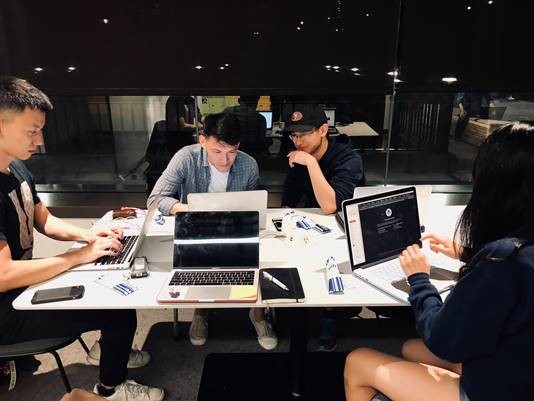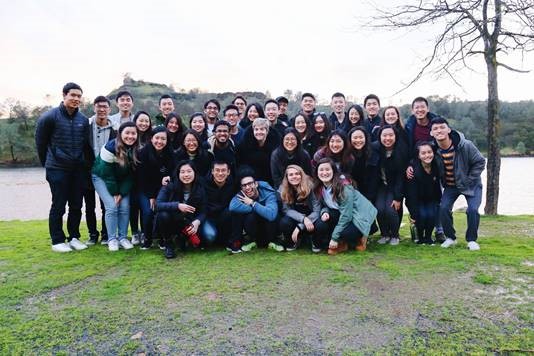Spotlight on Software for Social Good: Cal Blueprint
By Julianna Wright, posted on May 21, 2019Welcome to “Spotlight on Software for Social Good”, a new series where we’ll shine a light on different projects and thought leaders in the software for social good space. At Benetech, we know that the social sector must embrace the power of software and data to realize positive, lasting impact at scale. Each post will share insights from community members putting software and data to work for social change.
Cal Blueprint is a student organization at the University of California, Berkeley, which carries out pro bono coding projects for nonprofits across the globe. Their mission is to create beautiful and accessible technologies to support nonprofits and other organizations promoting social welfare. Each year, they work with five organizations on software projects that will help the organizations scale their impact. The Blueprint team designed and built a mobile app for taking attendance for a school in the Dominican Republic, a professional development platform for digital literacy in Oakland, and an online marketplace for food donations in the Bay Area.
I had the opportunity to speak with Wilson Wang, who is a project leader at Cal Blueprint to learn more about how they are designing software to drive impact at scale.

Can you tell me a little bit about the project you are leading for Cal Blueprint?
This year, my team is working with a nonprofit called HomePointr. The organization’s mission is to improve access to suitable housing options for people experiencing homelessness by connecting referral agencies with housing providers. Blueprint is building the web app to streamline the exchange of data between referral agencies and landlords who own properties to help individuals experiencing homelessness find housing faster, and help landlords fill empty units.
Through the web app, referral agencies can search for properties that may be suitable for the individual based on criteria like mental health institution nearby or a wheelchair accessibility by selecting relevant tags. The final product will be available by the end of the spring semester.
Learn more about how Benetech is working with referral providers to strengthen the social safety net
Why does using software to deliver social good resonate with you?
I have a responsibility to use my programming skills to make a positive impact in this world. After taking a coding class, early on in my college career, I realized how powerful learning to code and build these projects could be, and that I could harness this potential to create something that helps other people. When I decided to major in Computer Science, I wanted to give back to the community, teach other students, and give them an idea of the range of problems they can solve using programming, which led me to join Blueprint.
Has this social impact work shaped your understanding of the field and your approach to software development?
I think it’s very easy to get complacent with the comforts of the tech bubble. It isn’t bad to go work for a big tech company, but through my work for Blueprint, I’ve come to recognize how important it is to be aware of the impact of your work and the ethics of the projects you are working on. Many colleges are also starting to introduce ethics courses for their computer science students, but being involved firsthand in work with clear social implications makes these ethical considerations very real.
In terms of my approach to software development, the stakes are higher when you are working for a nonprofit with a powerful mission. Nonprofits don’t typically have the resources to continually invest in their technology, so it is especially important that we ensure that our solution is very well grounded and designed to work for their long-term needs.
To see this through, I meet regularly not only with the other developers from Blueprint, but also with our nonprofit partners. Good relationships and strong communication is key to delivering well-designed technology that helps our nonprofit partners achieve their mission.
What advice do you have for college students looking to start their own software for social good initiative?
Surround yourself with people who have the same motivations that you do. Your mission could be a little different than the rest of the college community is doing, but if it’s something you all believe in, by finding each other, you’ve already taken the first step.
Blueprint was founded by a couple of students who came together and said “Hey, together we can use our coding skills to do something good and maybe others will want to join us too.” Today, Blueprint has over 40 members working on projects for 5 nonprofits each year. Together you can really make a difference.

Thanks for sharing your story with us, Wilson. It’s great to see that code for good organizations like Cal Blueprint are creating opportunities for the next generation of socially minded techies to learn and use their skills to effect meaningful change.
Do you know about an organization that’s building or using software for social good? Let us know at [email protected], and we may feature them in an upcoming blog post.
What do we mean by software for social good? Read our Software for Social Good Explainer
